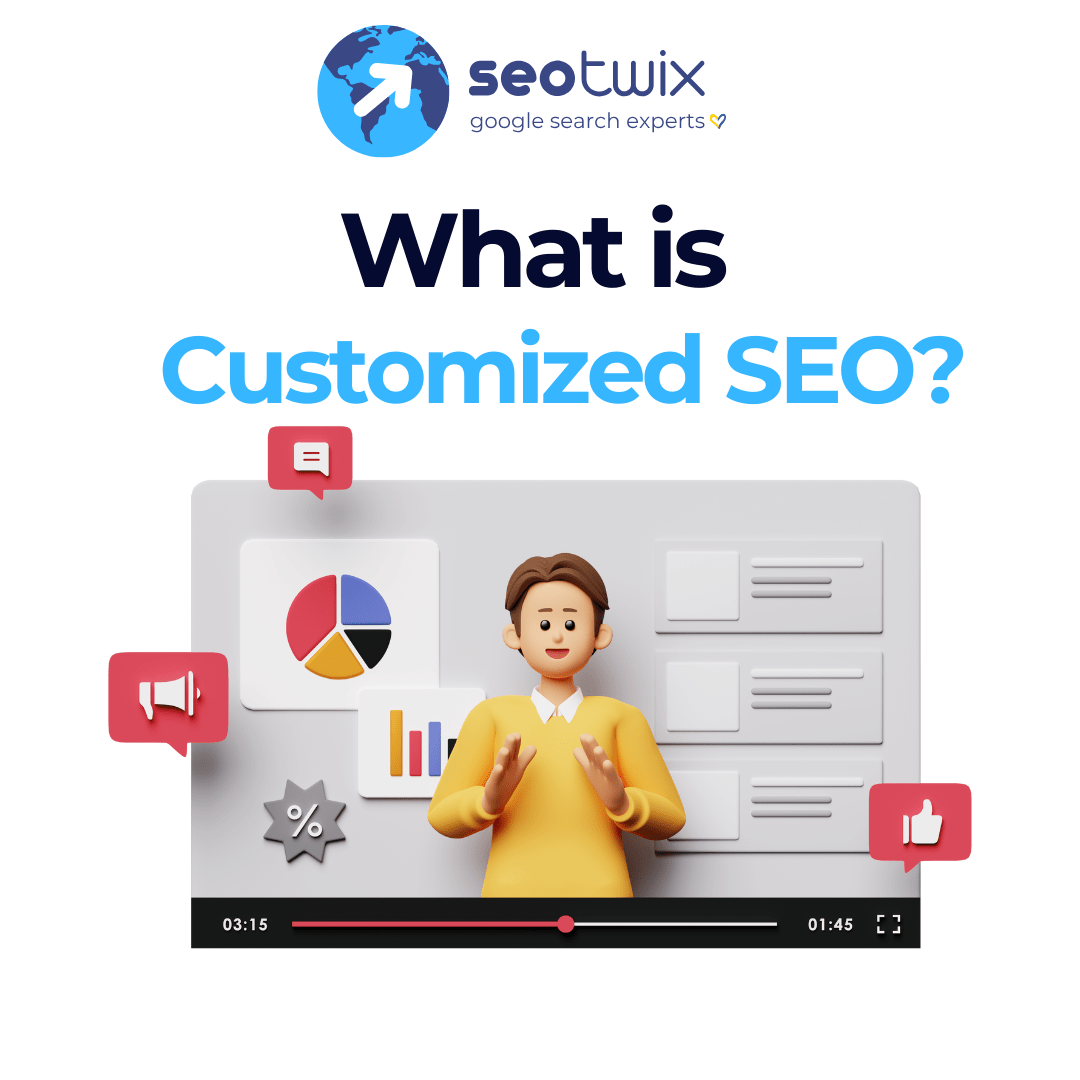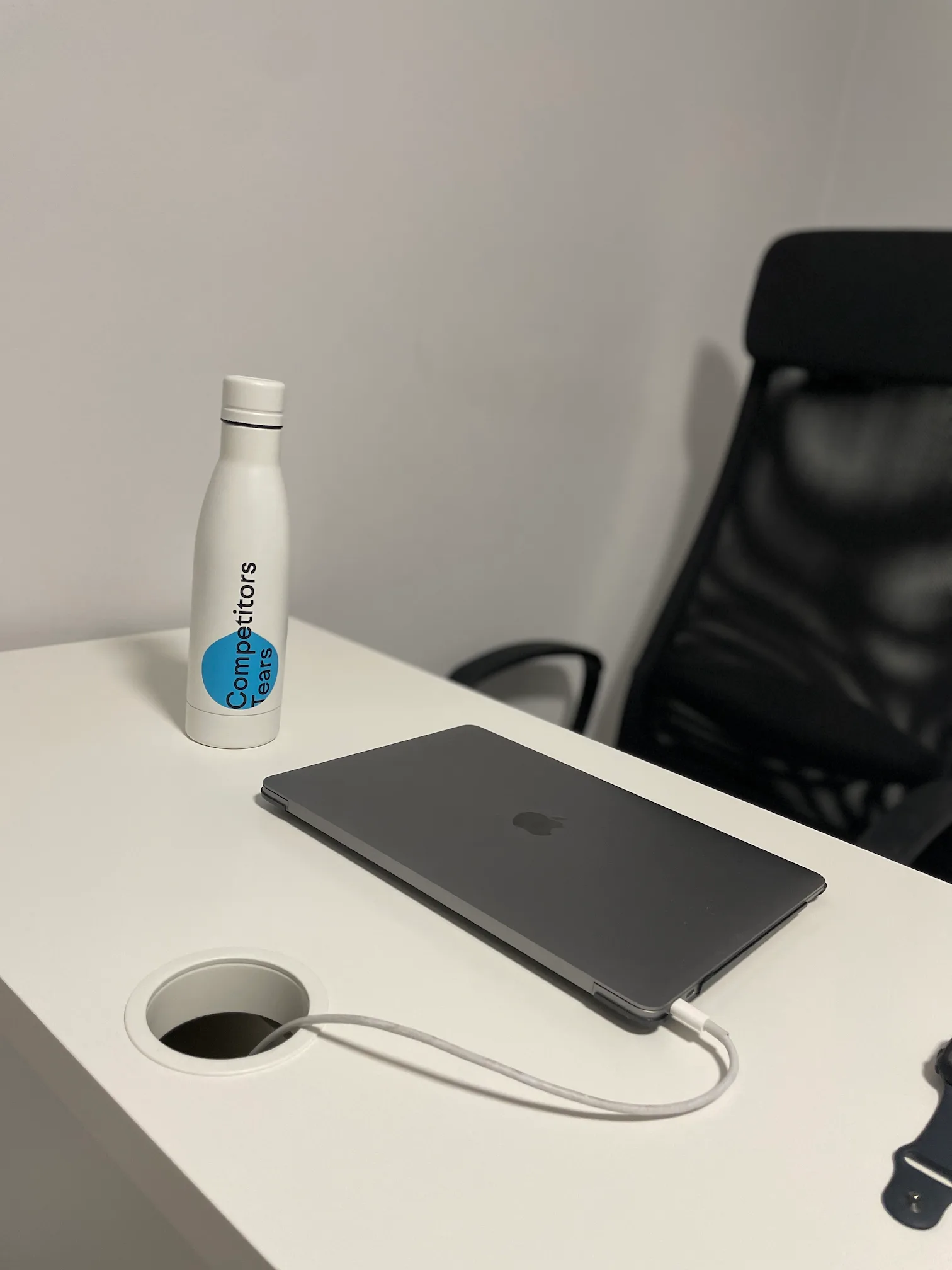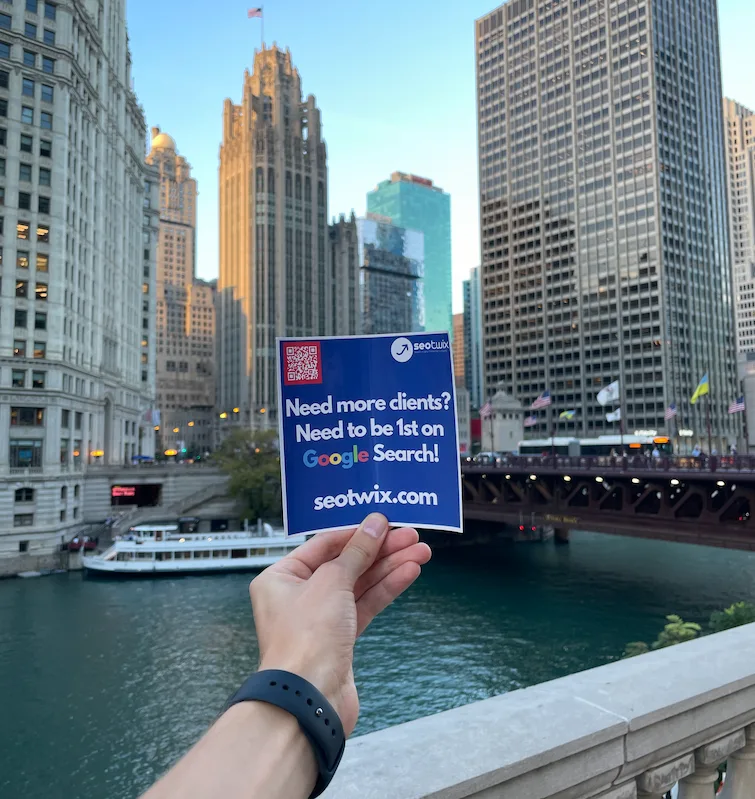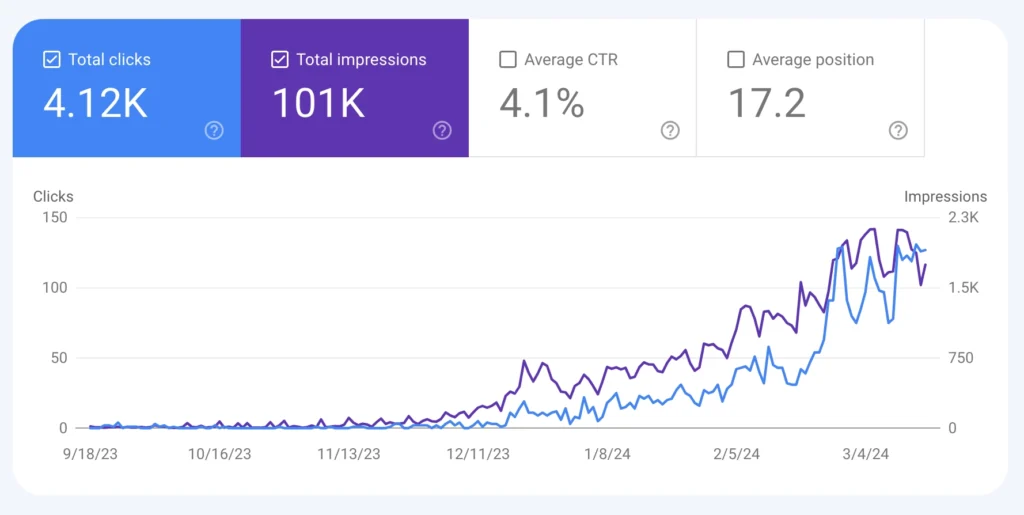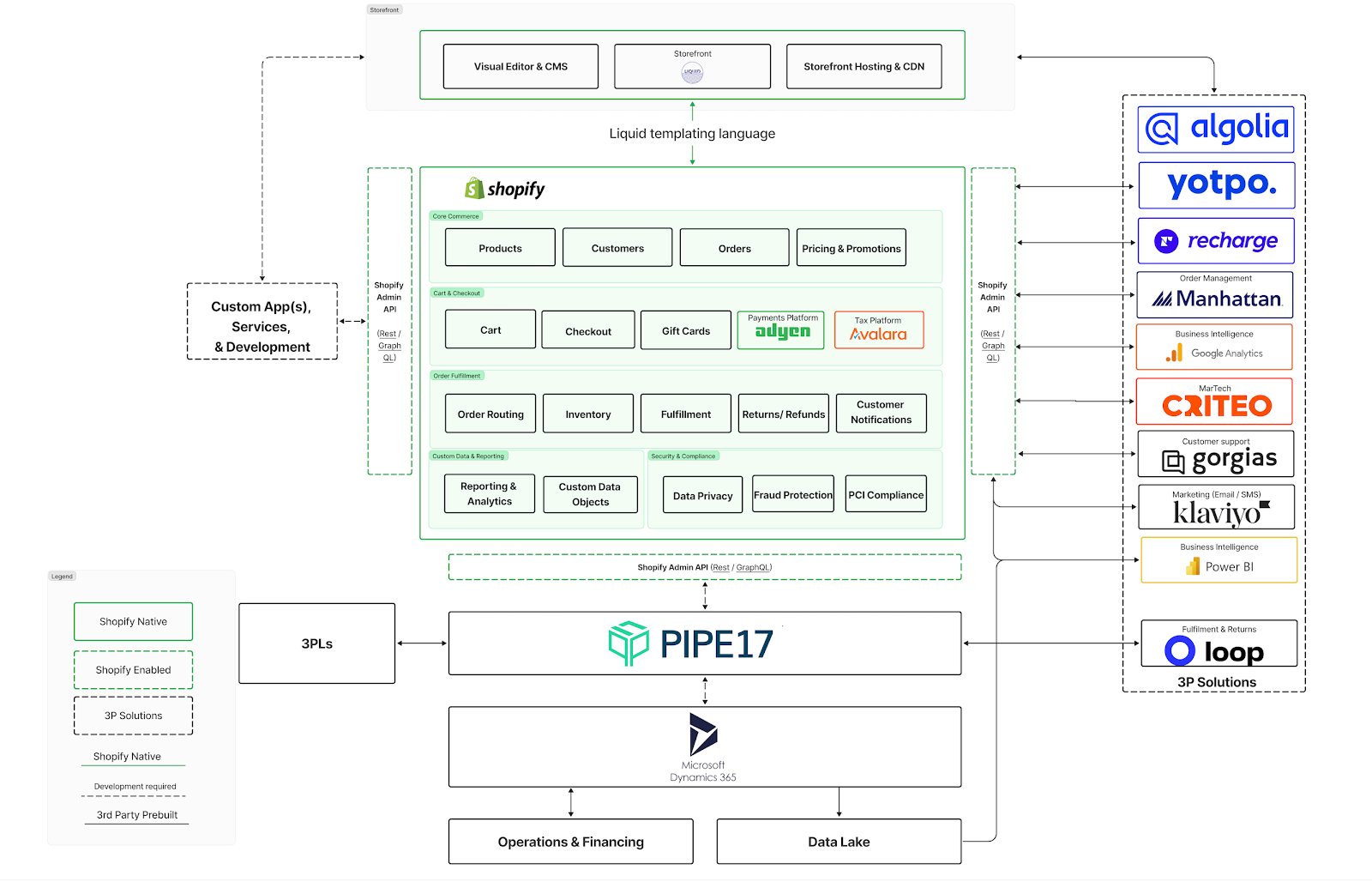Definition of customized SEO
Customized SEO is a personalized approach to search engine optimization, designed to meet the unique requirements of a business. It involves developing a strategy that takes into account the business’s industry, target audience, geographic location, and specific goals. Unlike generic SEO tactics, customized SEO ensures that the strategies implemented align perfectly with the business’s objectives and market conditions.
Key Components of Customized SEO
Keyword Research: Identifying relevant keywords that are specific to the business’s niche and audience. This involves using advanced tools like Ahrefs and SEMrush to uncover high-value keywords that competitors might be overlooking.
Content Marketing: Crafting unique, high-quality content that resonates with the target audience. This includes blog posts, infographics, videos, and other forms of content that address the specific needs and interests of the audience.
Technical SEO: Ensuring that the website’s technical aspects are optimized for search engines. This includes improving site speed, mobile optimization, and ensuring a secure and accessible website structure.
Local SEO: Focusing on optimizing the business for local search results. This is crucial for businesses that rely on local customers, such as restaurants, service providers, and retail stores.
Backlink Strategy: Building a robust backlink profile with links from high-authority sites relevant to the business’s industry. This enhances the website’s credibility and improves its search engine rankings.
The Process of Creating a Customized SEO Plan
Step 1: Conducting an SEO Audit
The first step in creating a customized SEO plan is to perform a comprehensive SEO audit. This involves analyzing the current state of the website, identifying strengths and weaknesses, and understanding the competitive landscape.
Step 2: Defining Goals and Objectives
Next, it’s essential to define clear, measurable goals and objectives. These could include increasing organic traffic, improving search engine rankings for specific keywords, or boosting online sales.
Step 3: Keyword Research and Analysis
In-depth keyword research is crucial to identify the most relevant and high-value keywords for the business. This involves using tools like Google Keyword Planner and Moz Keyword Explorer to discover keywords that align with the business’s goals and target audience.
Step 4: Developing a Content Strategy
Based on the keyword research, the next step is to develop a content strategy. This includes creating a content calendar, identifying content types (such as blog posts, videos, and infographics), and ensuring that the content aligns with the business’s goals and audience interests.
Step 5: Technical Optimization
Ensuring that the website’s technical aspects are optimized for search engines is a critical step. This includes improving site speed, mobile responsiveness, URL structure, and ensuring that the site is secure and easily crawlable by search engines.
Step 6: Implementing On-Page and Off-Page SEO
On-page SEO involves optimizing individual pages on the website to improve their search engine rankings. This includes optimizing meta tags, headers, and content. Off-page SEO focuses on building a strong backlink profile and enhancing the website’s authority.
Step 7: Monitoring and Adjusting
SEO is an ongoing process. It’s essential to continuously monitor the performance of the SEO strategies and make adjustments as needed. This involves using tools like Google Analytics and Google Search Console to track key metrics and ensure that the strategies are delivering the desired results.
What to choose? Customized SEO vs. Traditional SEO
Traditional SEO: A Brief Overview
Traditional SEO involves using a set of standard practices and techniques to improve a website’s search engine rankings. While these methods can be effective, they often lack the specificity and personalization needed to address the unique needs of individual businesses.
Why is customized SEO a better option than traditional SEO?
Personalization: Traditional SEO uses a more generic approach, while customized SEO focuses on tailoring strategies to the specific needs of the business.
Flexibility: Customized SEO is more flexible and adaptable, allowing businesses to quickly respond to changes in the market or industry trends. Traditional SEO tends to be more rigid and less adaptable.
Effectiveness: Customized SEO often delivers better results, as the strategies are specifically designed to meet the unique goals and challenges of the business. Traditional SEO may not be as effective in achieving specific business objectives.
When to Choose Customized SEO
Businesses should consider customized SEO if they have unique needs that aren’t fully addressed by traditional SEO tactics. This includes businesses in highly competitive industries, those targeting specific local markets, or those with specific goals that require a tailored approach.
How to Find an SEO Company That Customizes SEO Strategies
First, look for an SEO company with a history of delivering customized strategies. Check their SEO success stories, client testimonials, and portfolio to see how they have tailored their services to meet the unique needs of different clients.
Comprehensive Service Offering
A good customized SEO company should offer a full range of services, including keyword research, content marketing, technical SEO, local SEO, and link building. They should be able to integrate these services into a cohesive strategy that aligns with your business goals.
Use of Advanced SEO Tools
Ensure the company uses advanced SEO tools like Ahrefs, SEMrush, and Moz to conduct thorough research and analysis. These tools are crucial for developing a customized SEO strategy based on accurate data and insights.
Transparent Reporting and Communication
Transparency is key when working with an SEO company. They should provide regular reports and updates on the progress of your SEO campaign, including what customizations have been made and the results achieved.
How Seotwix succeeds in customized SEO
Personalized Onboarding and Consultation:
- Seotwix ensures a personalized touch by personally sending a welcome message and offering free SEO consultation and keyword competition analysis. This initial interaction is designed to understand the client’s specific needs and build a tailored SEO strategy.
Efficient Use of Technology:
- The company uses Stripe for automated billing, minimizing manual intervention in payment processes.
- Tools like GoHighLevel and ClickUp are used to manage project tasks effectively.
AI Integration:
- There is a clear focus on automating and optimizing processes using AI to reduce dependency on human resources and increase efficiency.
Transparency:
- Weekly reporting and transparency is maintained through regular reports, allowing clients to track progress and results.
Tailored Client Management:
- Seotwix ensures high-quality client management with regular updates and clear communication. This includes understanding the client’s business goals, marketing objectives, and unique market position to offer customized SEO solutions.
Experienced Team:
- The team comprises experts with specific roles, such as Senior SEO managers and Senior SEO strategist, who collaborate to deliver comprehensive SEO strategies and execution.
Strategic Targeting and Minimum Budget:
- Seotwix has shifted its targeting strategy to focus on clients with a minimum budget of $1500 for customized monthly SEO, ensuring that efforts are concentrated on clients who are serious about investing in SEO and know how much value SEO brings to every business.
Customized SEO is the key to SEO success.
When someone contacts us, we know their goal goes beyond just hiring SEO services—they want to grow their client base and see a positive return on investment (ROI). It’s vital for us to show our expertise and how we can meet their specific needs. Instead of merely trying to secure their business, we focus on evaluating if we can provide a strong marketing strategy that will truly benefit them.
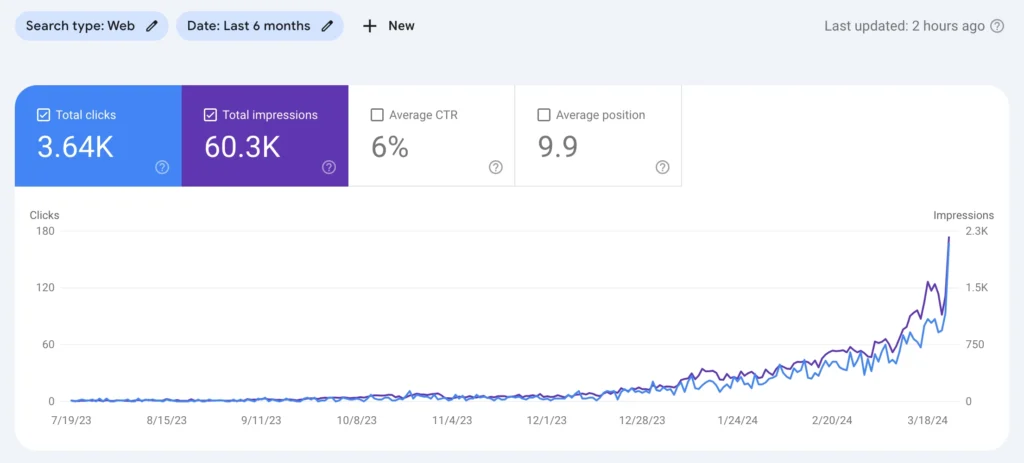
Cloud computing startup — USA 🇺🇸
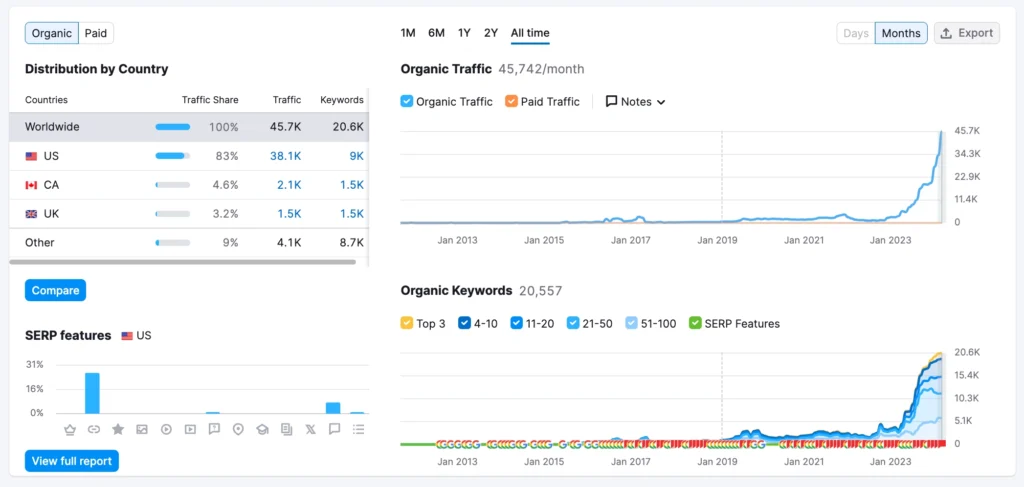
Personal Injury Guides Website — USA 🇺🇸
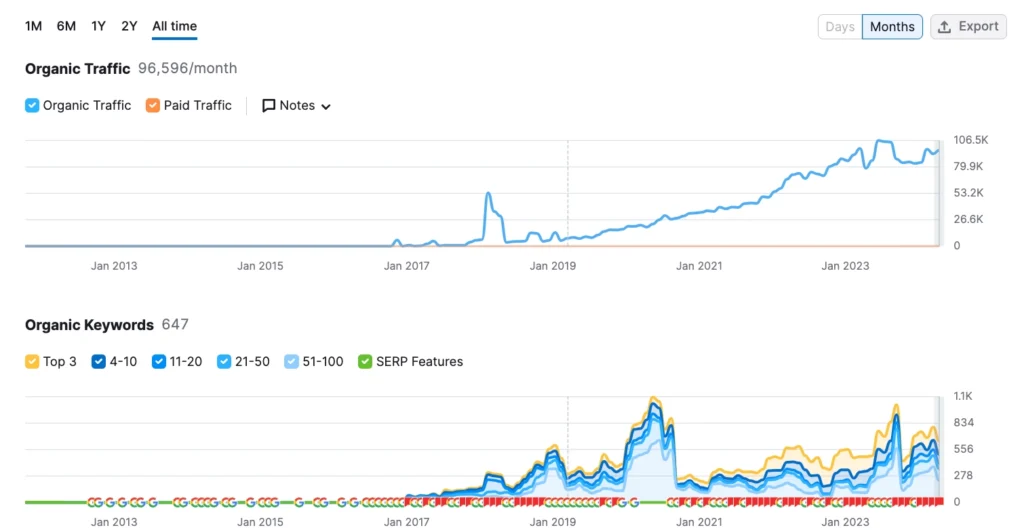
Seotwix's achievement for healthcare company (USA)
